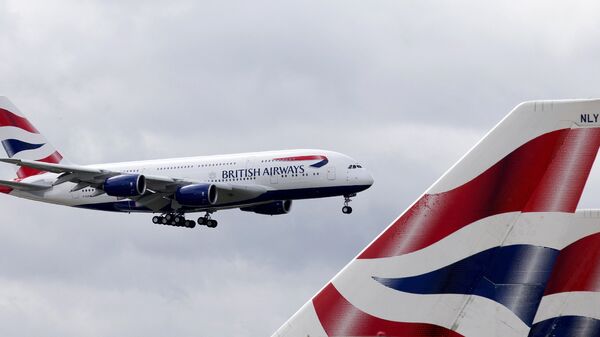David Rogers, an IoT security specialist, uploaded the picture, taken before an international flight at the London airport, to his Twitter account. The left-hand side of the sign reads: “We are trialling a new process today and welcome any feedback,” and the right-hand side said: “We’re running tests here to assess how new equipment could speed up identity checks.”
One might wonder what exactly led to the wave of indignation on the social platform; it was the key sentence, which says “The tests are voluntary, if you don’t want to take part, just let us know.”
Rogers tweeted that when he asked the staff how to “opt out” of the trial, they answered that it was impossible.
Me to staff member: "How do I opt out?" Staff: "You can't"… @PrivacyMatters @ClareAngelyn @British_Airways #privacy #FacialRecognition pic.twitter.com/oPMbp8w6Ww
— David Rogers (@drogersuk) 16 января 2018 г.
Privacy advocates lashed out at the airline:
I agree. Easier to argue if you know what they think it is? My money is on "because terrorism" — that magic word that apparently removes all privacy rights for everyone.
— SandreJ (@_SandreJ) 16 января 2018 г.
Hey @British_Airways — what right under law do you claim to do this — explain yourselves.
— Jack Haywire (@Winsmith99) 16 января 2018 г.
We have to halt the use of this evil #FacialRecognition technology before its use becomes pervasive #privacy V-masks anyone?
— John Lewis (@m2m_johnlewis) 16 января 2018 г.
I would ask @British_Airways what legal basis they are relying on under the data protection act to make the processing lawful cc @ICOnews
— Privacy Matters (@PrivacyMatters) 16 января 2018 г.
To be fair, the company did respond to Rogers’s tweet:
Hi David, thanks for your feedback. We’re keen to hear what our passengers are feeling about the new facial- recognition equipment tests. We hope it wasn’t too much of an inconvenience for you! ^Amy
— British Airways (@British_Airways) 16 января 2018 г.
British Airways has been using facial recognition technology along with the so-called “biometric gates” on domestic flights at Heathrow’s terminal 5 since June 2017. According to the company, “biometric gates” ensure that the check-in process is quicker and easier. The know-how modernizes the existing manual process; the airline opted for computer software that will confirm a passenger’s identity at the gate, rather than a human agent.
The website Alphr contacted British Airways for comments on the situation:
“It is voluntary for customers to take part in any trial taking place – we are sorry that the incorrect information was relayed on this occasion,” said a representative of the company, according to Alphr. The airline explained that while it is possible to opt out of the trial upon asking a member of staff, it still wouldn’t stop your image from being captured at all.
“At the very least, it should be made clear to passengers what is happening and how it affects their data. If facial recognition is rolled out more widely by airlines, we will need measures in place to protect citizens' privacy by making sure that access to data is proportionate and accountable, and not open to misuse,” Dr. Garfield Benjamin, from the Birmingham Centre for Cyber Security and Privacy at University of Birmingham, told Alphr.
The Netherlands were the first to introduce a biometric automated border control in 1992, and at the time fingerprinting had been used for over a decade. As for e-passports, they have started to gain ground since 2004, becoming commonplace in the UK’s major airports.


